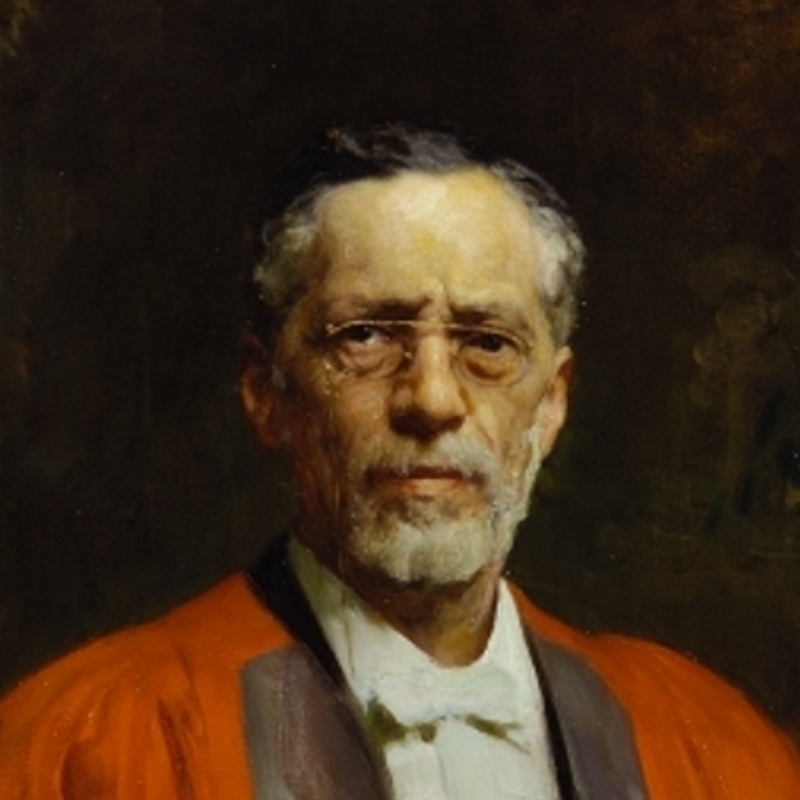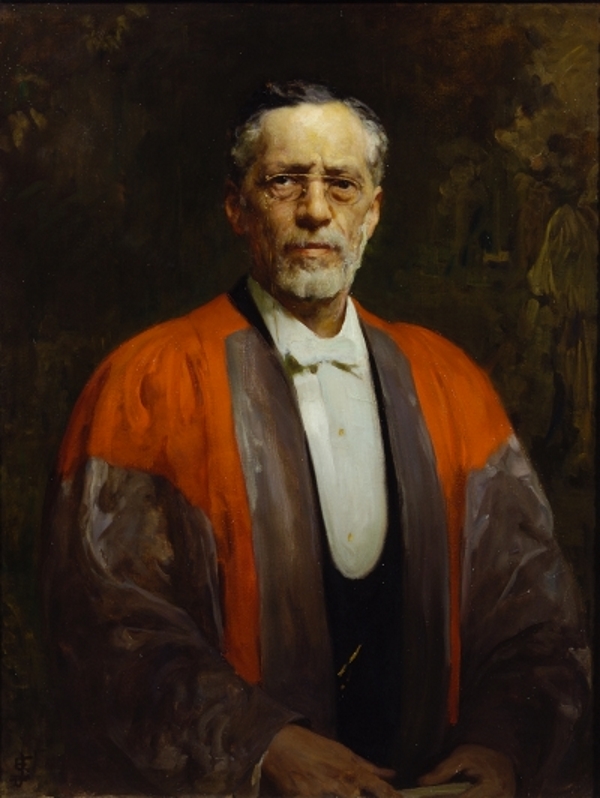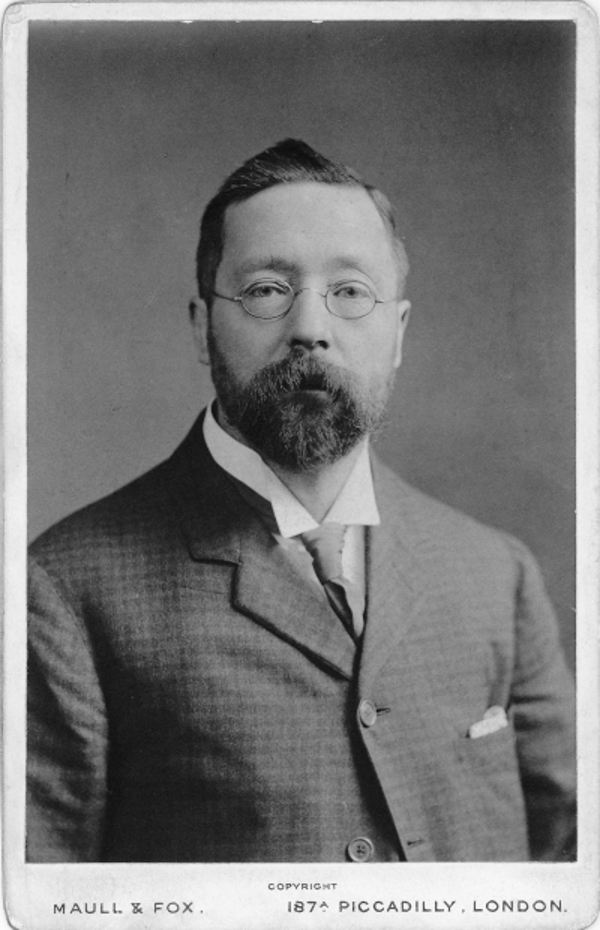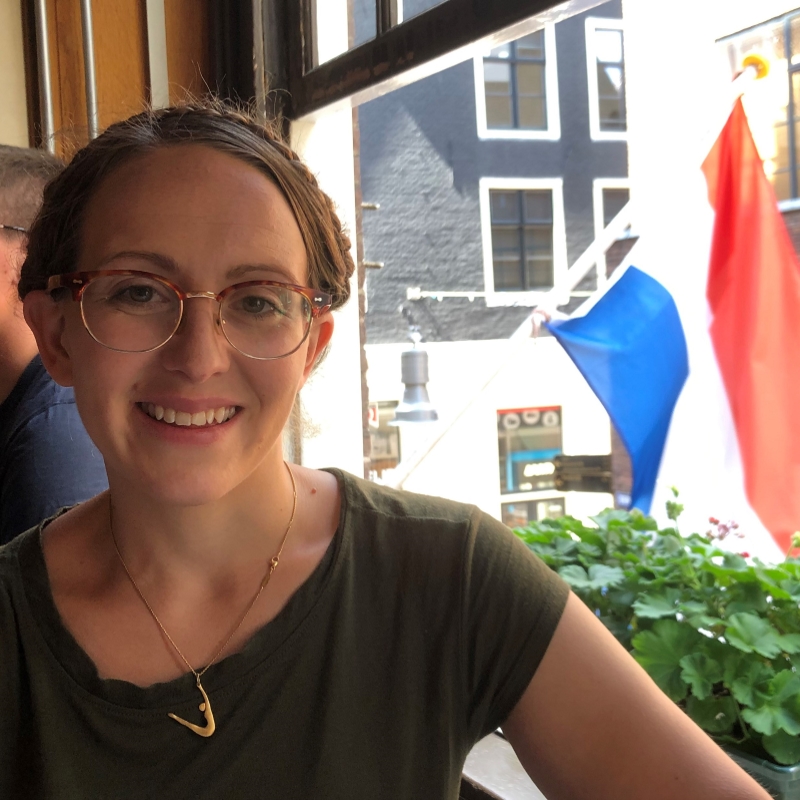Ellen Embleton looks at the transformation of the British chemical industry during and after the First World War, in response to criticism by several Fellows of the Royal Society.

As a new cataloguer at the Royal Society, I’m relishing the opportunity to handle some wonderful and historically significant records within the collections. At first glance, the Society’s New Letter Books (October 1885-September 1931) may not seem quite as engrossing as, say, Newton’s Principia manuscript. But these file copy letters, sent from various Presidents, Officers and Secretaries, provide a fascinating insight into the day-to-day functioning of the Society all those years ago.
The majority of subjects covered within the letters are administrative in nature; however, there are a number of outgoing requests made within the volume I’m currently working through (number 52, 1915-16) that feel quite removed from the rest. During these First World War years, letters asking one Fellow to write an obituary notice for another are common, as are messages of sympathy sent out to families of deceased Fellows.
At the turn of 1916, I noticed an increase in references made to chemists and the chemical industry. The earliest to catch my attention were letters sent to Fellows of the Society, informing them that the President, J J Thomson (1856-1940), was creating an advisory committee to deal with cases that fell under the ‘recent regulation of the Board of Trade’ on analytical chemists. I took to the Minutes of Council from 1915-16 to establish what this regulation was, and found the following note:
‘Analytical, consulting and research chemists are not allowed to be called up for service with the Colours without consent of the Royal Society’ [16 January 1916].
I then looked up the Minute Book of the War Committee of the Society and found a report from the Reserved Occupations Committee, the official title of the elusive advisory committee I had previously come across. This report revealed that it was the actions of three chemical Fellows of the Royal Society which led to the passing of this regulation. In November 1915, Arthur Crossley (1869-1927), Percy Frankland (1858-1946) and Martin Forster (1872-1945) met with a representative from the Board of Trade and called for an end to the depletion of trained chemists at the home front. I was curious to know why such extreme measures were necessary.

Portrait of Raphael Meldola by Solomon Joseph Solomon, ca. 1912-1915 © The Royal Society
Through further digging I found that in February 1915, a prominent British chemist, Raphael Meldola (1849-1915), presented a memorial to Council in which a ‘failure to realise that modern industry, to be successful, must be based on scientific research’ was blamed for preventing the British chemical industry from developing as it should. The memorial lamented the current ‘backwardness’ in this field, and the fact that Britain had allowed foreign rivals to ‘outstrip our own’. It was obvious from very early on in the war that German chemical industries were ahead of those in Britain. Germany was quick to exploit the potential of synthetic organic chemistry, and by the time the war started it dominated the world market in the production of organic chemical products.

William Perkin Jr, Maull & Fox 19th century photograph © The Royal Society
Another Fellow of the Royal Society to express frustration at this was William Perkin Jr (1860-1929):
‘It is surely remarkable that the study of so important a subject as organic chemistry should not only have been practically ignored by our universities in the past, but that even at the present day it does not flourish in the way it does in almost every university and technical school in Germany.’
A letter sent to the Society from Bernard Dyer, a consulting chemist and public analyst, echoes this sense of neglect. Dr Dyer notes the longstanding issue that ‘the profession is numerically a small one’, and calls for something to be done promptly in order to address this ‘most serious question’.
Britain’s struggle to match Germany’s industrial prowess during the war brought the inherent failings of the British chemical industry to the fore. Meldola, Perkin and Dyer would likely suggest that this was not simply a war-induced phenomenon; their comments point towards a longstanding refusal to take the work of chemists seriously. The war simply held a spotlight to this issue.
However, this spotlight illuminated the way for more enlightened ideas, and by 1919 many had noticed a transformation in the chemical industry. To say that the chemical Fellows’ call for chemists to be protected by the Reserved Occupations Regulations was responsible for this transformation might be to stretch the truth, but their pressing for a reserve of chemists at the home front no doubt played a part, enabling chemical research to develop within those years. That the input of the Society’s Fellows in this issue was flagged up to me by one of our New Letter Books makes clear their value as a historical resource, and as I reach the end of volume 52, the prospect of what lies ahead is an exciting one.







